If you’re a car owner, chances are you’ve experienced the frustration of a vehicle that’s not running smoothly. Whether it’s a minor issue or a major repair, getting your car back on the road can be a stressful process. This guide provides a comprehensive overview of car maintenance and repair, designed to help you understand common issues, preventative measures, and potential solutions.
Understanding Car Maintenance Basics
Regular maintenance is crucial to prevent major breakdowns and keep your car running efficiently. Here are some essential aspects of car maintenance:
Oil Changes:
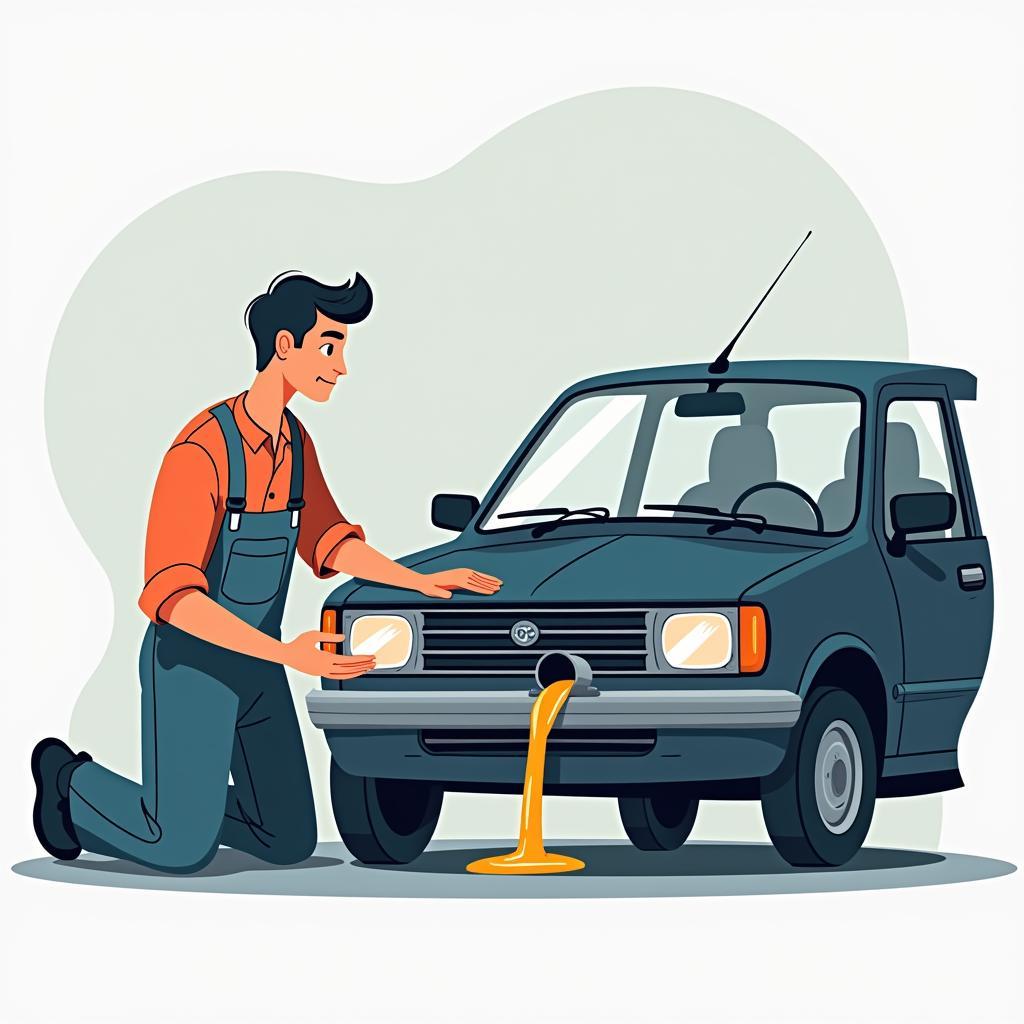 Oil Change Maintenance: A Crucial Step for Car Longevity
Oil Change Maintenance: A Crucial Step for Car Longevity - Oil lubricates moving parts, reduces friction, and prevents wear and tear.
- It’s recommended to change your oil every 3,000-5,000 miles, or as per your car’s owner’s manual.
Tire Pressure:
- Maintaining proper tire pressure ensures optimal handling, fuel efficiency, and tire lifespan.
- Check your tire pressure regularly using a tire pressure gauge and inflate to the recommended level specified in your owner’s manual.
Air Filter Replacement:
- A dirty air filter restricts airflow to the engine, reducing performance and fuel efficiency.
- Replace the air filter every 12,000-15,000 miles or more frequently if you drive in dusty conditions.
Brake Inspection and Maintenance:
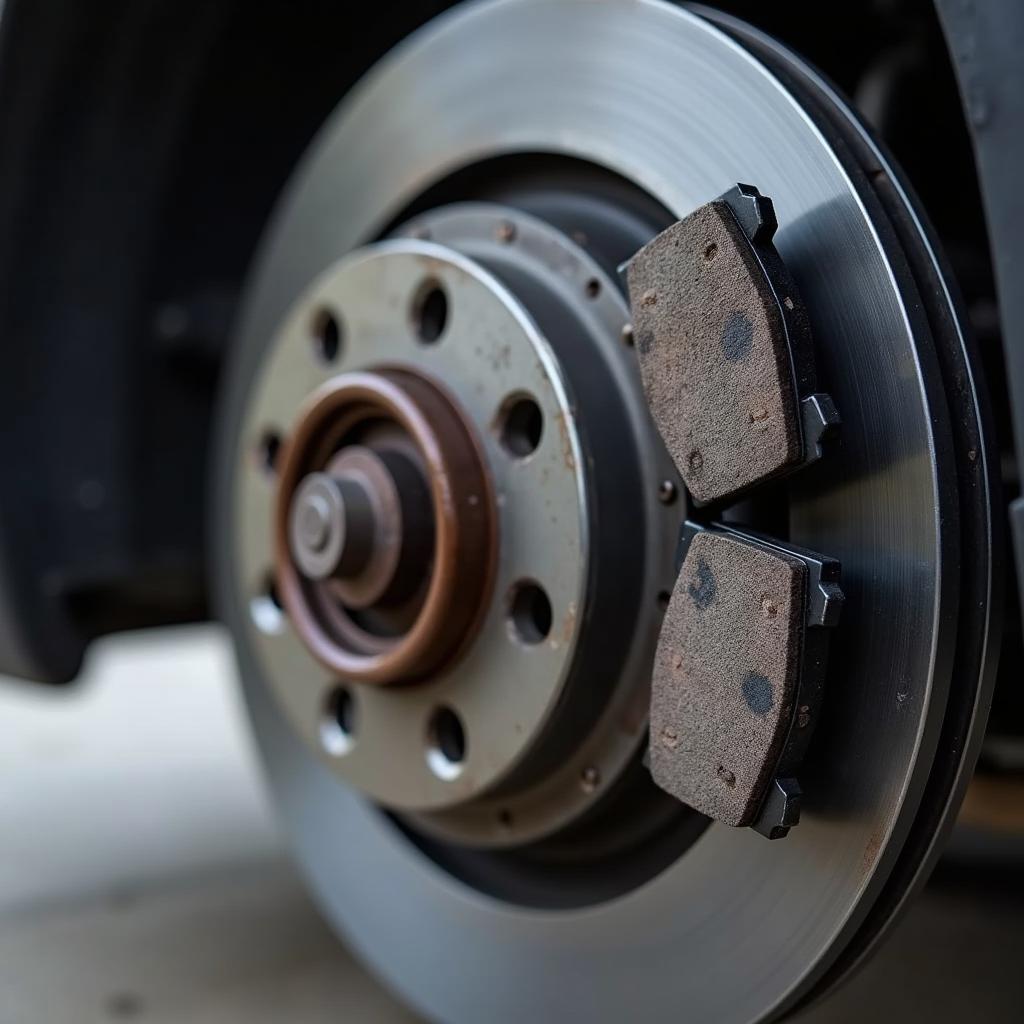 Brake Inspection and Maintenance: Ensuring Safety on the Road
Brake Inspection and Maintenance: Ensuring Safety on the Road- Brakes are crucial for safety, and regular inspection is necessary to ensure optimal performance.
- Check brake pads and rotors for wear, and replace them as needed.
Battery Maintenance:
- A weak battery can cause starting problems and affect the electrical system.
- Check battery terminals for corrosion and clean them with a wire brush.
- Consider replacing the battery every 3-5 years or sooner if it shows signs of weakness.
Common Car Repair Issues and Solutions
While preventative maintenance is vital, car repairs are inevitable at some point. Here are some common car repair issues and potential solutions:
Engine Problems:
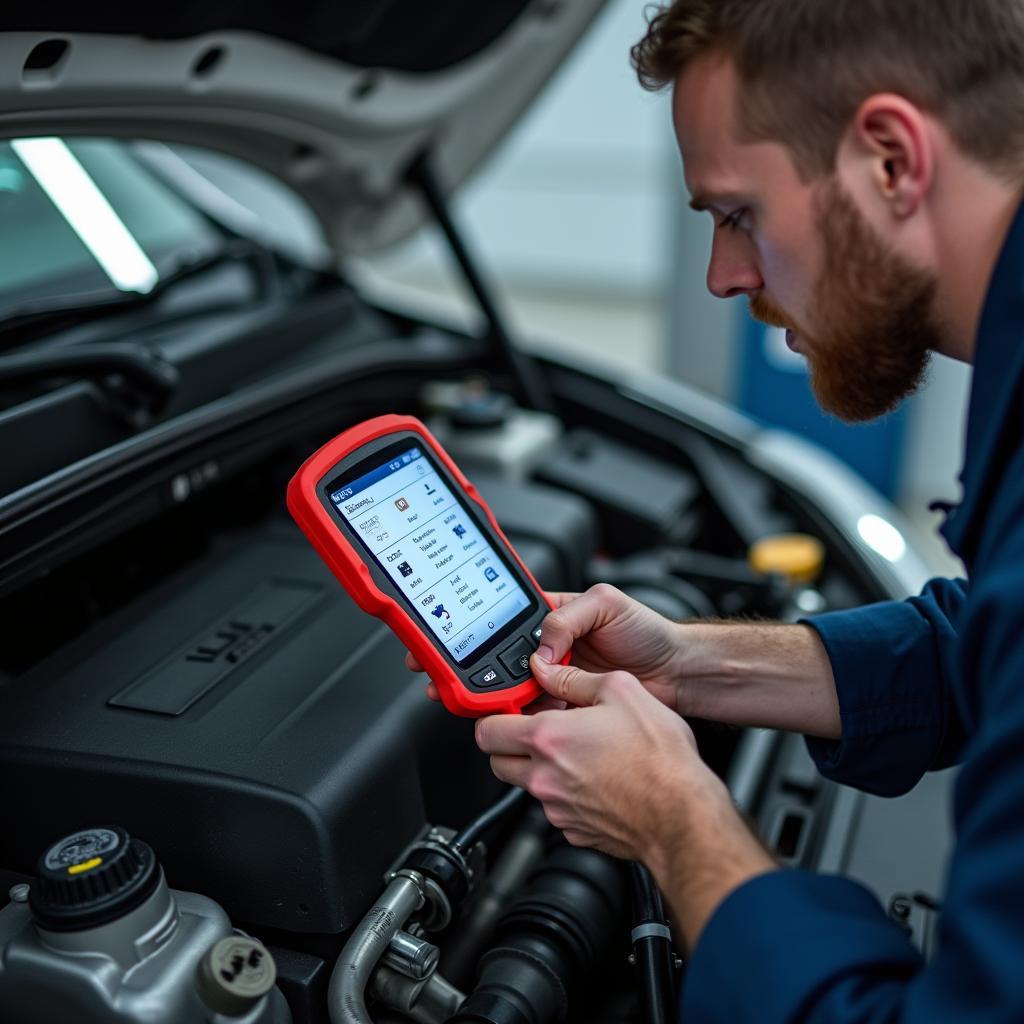 Engine Problems Diagnosis: Identifying and Solving Engine Issues
Engine Problems Diagnosis: Identifying and Solving Engine Issues- Engine problems can range from minor issues like a faulty spark plug to major problems like a blown head gasket.
- “It’s crucial to diagnose the problem accurately before attempting any repair,” says renowned mechanic, John Smith.
- Consult a qualified mechanic to diagnose and address engine problems.
Transmission Issues:
- Transmission issues can involve slipping gears, rough shifting, or complete failure.
- These issues are often complex and require specialized expertise to repair.
- Contact a transmission specialist for diagnosis and repair.
Electrical Problems:
- Electrical problems can be frustrating and difficult to troubleshoot.
- Common issues include malfunctioning lights, faulty wiring, or problems with the alternator.
- A qualified mechanic can diagnose and repair electrical problems effectively.
Suspension and Steering Issues:
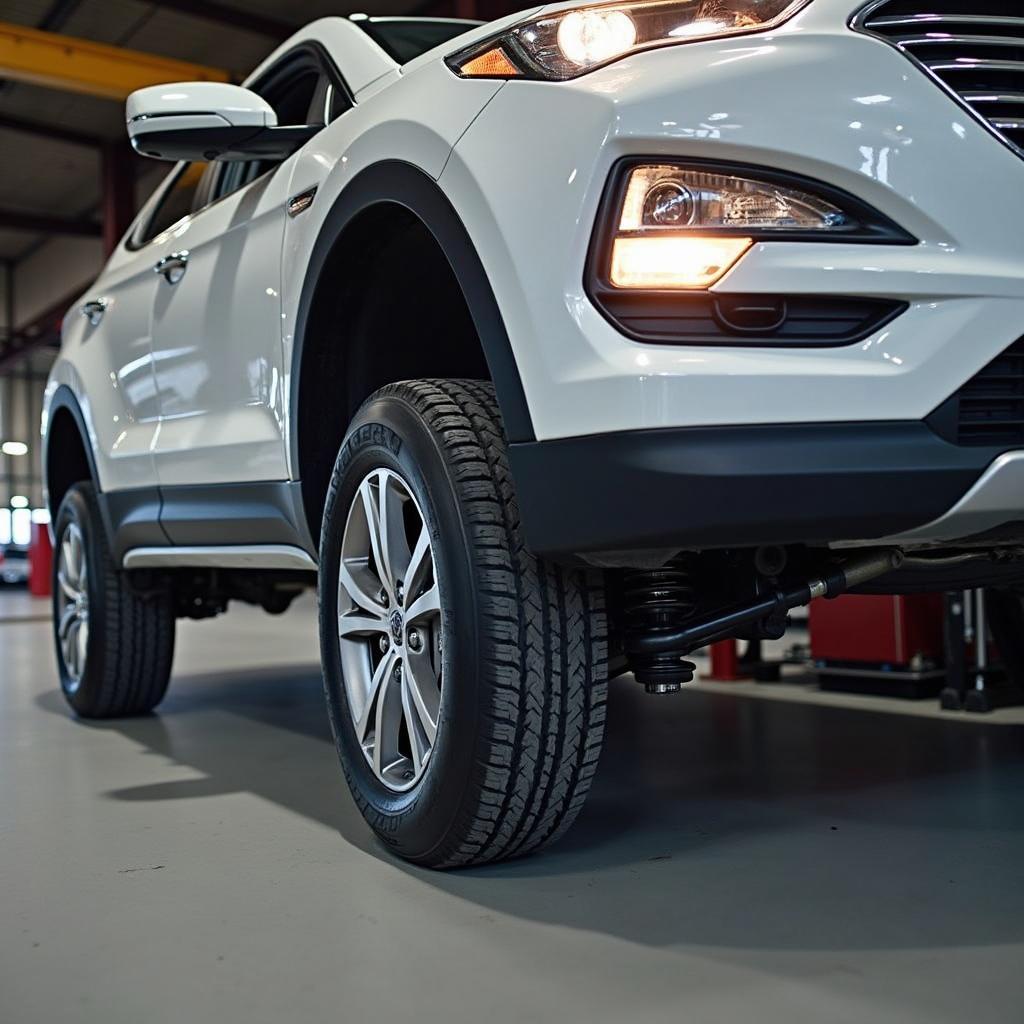 Suspension and Steering Issues: Ensuring a Smooth Ride
Suspension and Steering Issues: Ensuring a Smooth Ride- Suspension and steering issues can cause uneven tire wear, vibrations, or a loss of control.
- “Ignoring suspension issues can lead to more serious problems,” says automotive expert, Sarah Williams.
- Visit a mechanic for inspection and repair if you experience any suspension or steering problems.
DIY Car Maintenance and Repair Tips
For basic maintenance tasks like oil changes or air filter replacements, you can consider DIY options:
Gather Necessary Tools and Supplies:
- Before starting any DIY car repair, gather the necessary tools and supplies.
- Refer to your car’s owner’s manual or online resources for specific tools required.
Follow Safety Precautions:
- Safety is paramount when working on your car.
- Always use safety glasses, gloves, and other protective gear.
- Disconnect the battery before working on any electrical components.
- Park your car on a level surface and engage the parking brake.
Utilize Repair Manuals and Online Resources:
- Refer to repair manuals or online resources for step-by-step instructions and diagrams.
- “Many online resources offer helpful guides for DIY car maintenance and repair,” advises experienced mechanic, David Johnson.
Seek Professional Help for Complex Tasks:
- For complex tasks or when unsure about a repair, seek professional help from a qualified mechanic.
Finding a Reputable Mechanic
Finding a trustworthy mechanic is crucial for any car repair or maintenance needs. Here are some tips for finding a reputable mechanic:
Ask for Recommendations:
- Talk to friends, family, or colleagues who have experience with local mechanics.
Check Online Reviews:
- Read reviews on websites like Yelp or Google to get insights into the reputation and customer satisfaction of different mechanics.
Inquire About Certifications and Experience:
- Ask about the mechanic’s certifications and experience level.
Get a Written Estimate:
- Always get a written estimate before any work is performed.
Ask About Warranties:
- Inquire about any warranties offered on parts and labor.
Conclusion
Maintaining and fixing your car is a necessary aspect of car ownership. By following these tips and seeking professional help when needed, you can ensure your car is running safely and efficiently. If you have any questions or need assistance with your car, feel free to reach out to our team at AutoTipPro:
Phone: +1 (641) 206-8880
Address: 500 N St Mary’s St, San Antonio, TX 78205, United States
FAQ
Q: How often should I change my oil?
A: It’s generally recommended to change your oil every 3,000-5,000 miles, but consult your car’s owner’s manual for specific guidelines.
Q: How can I find a trustworthy mechanic?
A: Ask for recommendations, read online reviews, and inquire about certifications and experience.
Q: Is it safe to do DIY car repairs?
A: For basic maintenance tasks, DIY repairs can be safe if you follow safety precautions and utilize repair manuals. However, for complex tasks, it’s best to seek professional help.
Q: What are the signs of a bad battery?
A: Signs of a bad battery include slow cranking, dim headlights, or a clicking sound when trying to start the car.
Q: What should I do if my car suddenly breaks down?
A: If your car breaks down, try to pull over to a safe location. Call for roadside assistance or a tow truck if needed.
Q: What are the benefits of regular car maintenance?
A: Regular maintenance helps prevent major breakdowns, improves fuel efficiency, and extends the lifespan of your car.




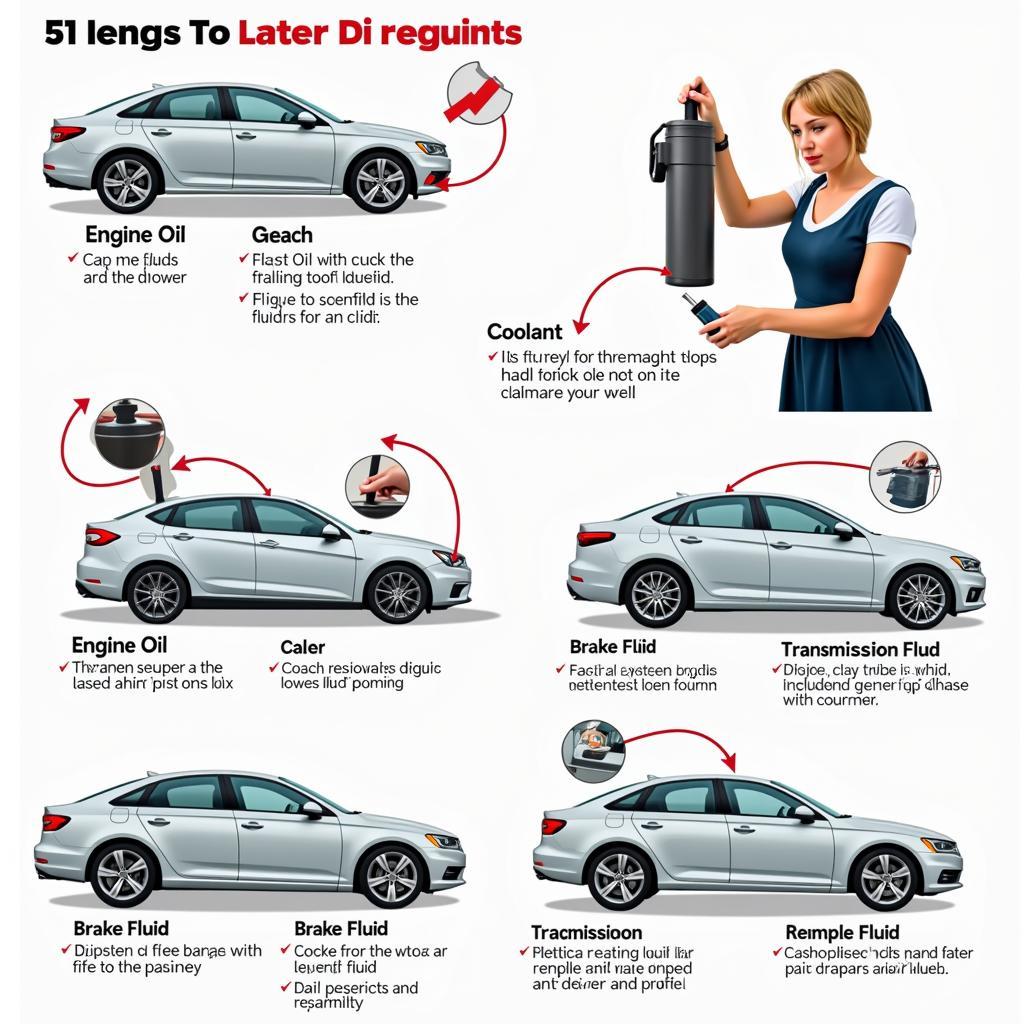
Leave a Reply